Thinking Big
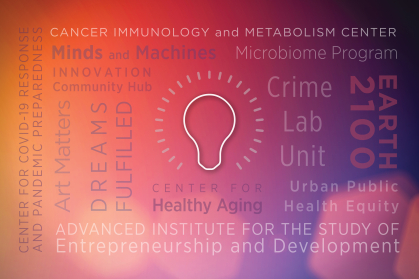
Rutgers Big Ideas—an initiative of 12 bold projects with global implications—will draw on the university’s academic, health care, and research expertise to make the world a better place.
For more than 250 years, Rutgers has been reaching further, trying harder, and achieving bigger and better things. From the discovery of streptomycin, the first antibiotic used to treat tuberculosis, to the Rutgers Tomato, the university has given birth to bold projects that have made the world a better place.
These innovations didn’t appear by magic. If every great achievement begins with an idea, it is also true that those ideas require resources, collaboration, and organizational support. Rutgers has used these ingredients time and time again. And the university is continuing the tradition in the Big Ideas initiative.
In 2018, Rutgers issued a challenge to its 23,000 faculty and staff to produce their most imaginative, disruptive, and visionary proposals for inspiring widespread, equitable societal change. That challenge resulted in more than 200 collaborative ideas, ranging from cutting-edge cancer treatment to socially engaged art and sustainable urban farming.
Forty teams went on to pitch their large-scale, forward-thinking projects at a symposium on October 4, 2019. Hundreds of community leaders, philanthropists, and innovators gathered to learn more about how Rutgers was applying its intellectual power to serve the common good. They offered their input to guide what came next.
In 2020, as much of the world turned inward in the face of COVID-19, the Rutgers community continued to move the Big Ideas initiative forward. Rutgers chancellors and academic leaders at Rutgers University–New Brunswick, Rutgers Biomedical and Health Sciences, Rutgers University–Newark, and Rutgers University–Camden met repeatedly (and remotely) to discuss and refine the 40 proposals and incorporate feedback from the university community. President Jonathan Holloway reviewed the team’s recommendations and supported the vision and aspirations reflected in their choices.
From those deliberations emerged 12 Big Ideas that advance Rutgers’ status as a world-class university devoted to the greater good. Driven by faculty and researchers across disciplines, divisions, and locations, the 12 interdisciplinary projects hold the potential to address critical issues of our day, such as public health, climate resilience, social justice, access to education, microbiomes, and artificial intelligence.
“These Big Ideas have the capacity to improve the human condition,” says Holloway. “By leveraging Rutgers’ standing as an academic, health, and research powerhouse, our university is poised to lead the nation and world toward a more just and sustainable future. These projects could not come at a more critical time. At what may seem to be a dark hour in human history, Big Ideas promise to light a way forward.”
Gut Reaction
The Rutgers University Microbiome Program will examine the interactions among microbes and their hosts and the strong need for diversity in microbes that inhabit our bodies.
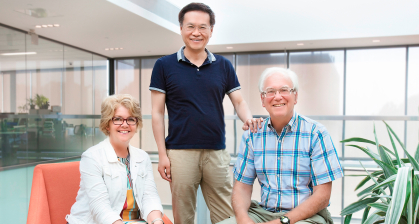
“Each of us is a microbiological ecosystem,” says Maria Gloria Dominguez-Bello, Henry Rutgers Professor of Microbiome and Health at the School of Environmental and Biological Sciences (SEBS). “And from what we have observed, we have lost microbiome diversity.” Given the critical role our gut bacteria play in our metabolism and in boosting our immunity to pathogens, like coronaviruses, and our ability to combat other diseases, the loss of microbiota variety, particularly at young ages, has led to many problems that scientists are still discovering.
“Because of modern life—sanitation, antibiotics, antibacterials—we’re changing the microbiome, and those changes have consequences,” says Martin Blaser, director of the Center for Advanced Biotechnology and Medicine. In other words, the lack of normal bacteria that are no longer present in our body is causing many chronic diseases. “The ways that we have been changing the development of a normal microbiome in early life has moved us out of health and into disease.”
The Rutgers University Microbiome Program aims to examine the microbiome’s role in human health, as well as in food systems, plants, animals, and the environment, all of which are undergoing severe diversity loss. The program will promote the preservation of microbiome diversity globally, develop novel solutions for restoring and maintaining healthy microbiota, and train students to be the next generation of physicians and scientists in microbiome research. It will also position Rutgers as an internationally recognized leader in microbiome research and accelerate the application of scientific discoveries to products and practices that improve human health. “Microbiome research can transform medicine, agriculture, the environment—altogether, it’s possible,” says Liping Zhao, the Eveleigh Fenton Chair of Applied Microbiology at SEBS.
Live Long and Prosper
Rutgers Center for Healthy Aging will develop care strategies to improve the lives of older adults.
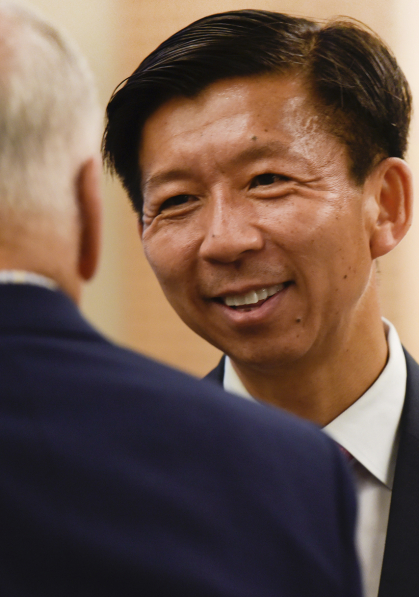
The United States is a rapidly aging nation. By 2035, Americans over 65 are projected to outnumber those under 18. The graying of America brings corresponding increases in age-related illnesses and associated medical problems. “Dementia, comorbidities, delirium, depression, and frailty impact many of our older family members at one point or another,” says XinQi Dong, director of the Institute for Health, Health Care Policy, and Aging Research.
Beyond disease-specific issues, meeting the needs of a large, aging population also means addressing the many inequities in elder care, from social conditions that lead to poor health, to unequal access to quality care, to limited economic resources that have existed for years. “New Jersey is one of the wealthiest states in the country, and yet it’s ranked one of the worst when it comes to health disparities,” says Dong. “And many of those affected by this disparity are older adults.” Dong is spearheading the Rutgers Center for Healthy Aging at the Institute for Health, which seeks to improve health equity in New Jersey by expanding research and resources that will make elder care more functional, inclusive, and accessible.
“When I think of the Center for Healthy Aging, I think not only of the scientific achievements, but also of how we invest in human potential—those who aspire to make people’s lives better,” says Dong. The new center focuses on research and collaborations among experts, clinicians, caregivers, and patients to develop evidence-based care strategies that improve the lives of older adults. “It’s really the combination of the personal experience and research that gives us the best ability to guide our patients and families through difficult times,” says Dong.
Art Rising
Art Matters, administered by Express Newark, will be a safe haven for creativity and expression.
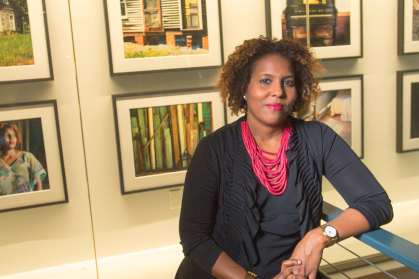
Since 2017, Express Newark has been a place where the people of the city of Newark and Rutgers University–Newark collaborate to lift the voices and visions of their diverse community. And in a year of racial reckoning and disparities laid bare by the pandemic, Express Newark’s creative space is more essential than ever. “Art is what has allowed Newark to persevere in the face of systemic racism that we all know can bring you to your knees,” says Rutgers–Newark chancellor Nancy Cantor. “What art does is bring you up.”
That inspirational power was never more apparent than during the height of the Black Lives Matter protests in 2020. “The one project we were really fortunate to be a part of and really be a creative partner in was the social justice murals that the city has supported and conceived,” says Salamishah Tillet, faculty director of the New Arts Justice Initiative at Express Newark and Henry Rutgers Professor of African American and African Studies and Creative Writing at Rutgers–Newark. “You had faculty, students, and alumni collaborating with city officials and community artists to create two really beautiful street murals.”
As students have wanted to engage more deeply in the community, Express Newark has been evolving into something more, thanks to the Art Matters project. “Express Newark, and Art Matters in particular, has a way of bridging this divide or decreasing that gap between those who have access and those who do not—those who are allowed to create and those who are told that they should be creative,” says Tillet. “The issues that we’re addressing—social justice and equity—are so big that we need many ways of imagining how to navigate and make sense of them.”
The Next Outbreak
The Center for COVID-19 Response and Pandemic Preparedness anticipates future calamities.
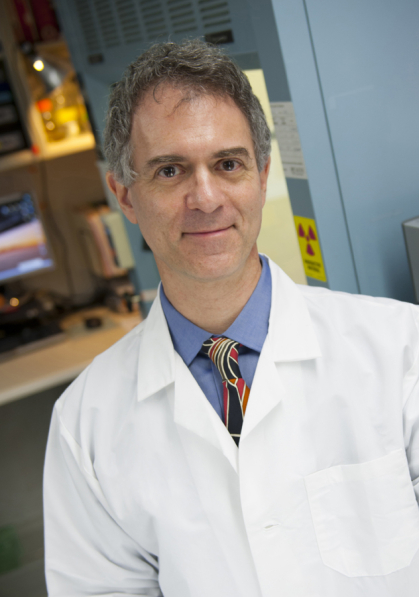
Before the COVID-19 pandemic, coronavirus was considered a relatively harmless pathogen linked to upper respiratory illness and the common cold. “Now we’ve seen how far it can come in its potential virulence,” says Shobha Swaminathan, associate professor at New Jersey Medical School. “To go in and deal with an infectious disease that has been so deadly and so devastating—to literally watch people die by themselves—it was a nightmare.”
The university’s strengths in infectious and inflammatory disease research allowed Rutgers to establish itself at the forefront of the COVID-19 pandemic response. “We have a huge breadth and depth in medical research; we can do testing and we can actually have therapeutic trials,” says Christopher J. Molloy PHARM’77, GSNB’87, chancellor of Rutgers–New Brunswick. “It’s an exciting time for medical research at this university.” Despite advances in medicine over the last century and the university’s robust research infrastructure, scientists are still unable to accurately predict and prepare for the emergence of the next deadly virus. The vision for the new Center for COVID-19 Response and Pandemic Preparedness is to do just that.
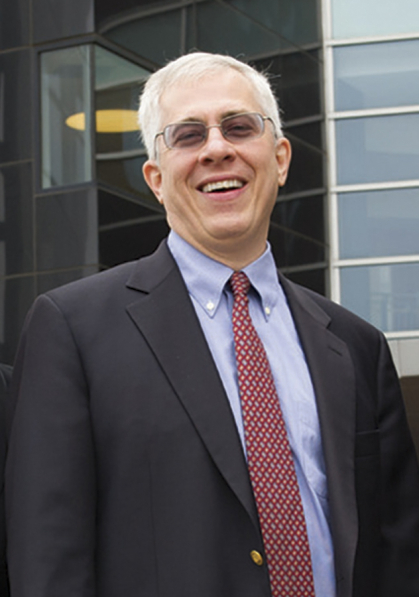
David Alland, the center’s codirector, sees a future in which scientists can be proactive with viral outbreaks instead of being reactive, developing rapid-response preparedness capabilities to address a broad range of emerging and re-emerging pathogens.
Working in several disciplines, the center has developed models to better understand SARS-CoV-2, the novel coronavirus that causes COVID-19, and it has advanced novel treatments to control viral replication and harmful inflammation, a core contributor to the lung injury and dysfunction associated with COVID-19.
William Gause—the codirector of the initiative and also the director of the Center for Immunity and Inflammation at New Jersey Medical School—is optimistic. “One of the holy grails of immunology,” he says, “is coming up with ways of modulating the COVID-19 immune response without compromising the components that lead to resistance and host protection.”
And Justice for All
The Rutgers Crime Lab Unit will provide forensic science technology to improve public safety.
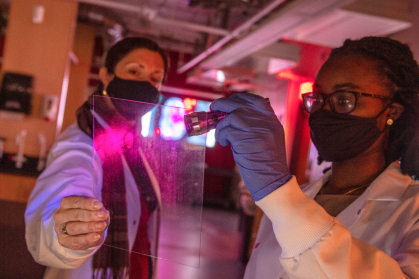
Forensic science isn’t always as streamlined and infallible as it looks on TV. Although it’s capable of collecting, examining, and analyzing physical evidence with impressive resolution and accuracy, forensic science can also contribute to wrongful convictions, ineffective prosecutions, and cold cases if misused. “We have this powerful tool in forensic science, and we aren’t realizing its potential,” says Kimberlee Sue Moran, associate teaching professor and director of forensics at Rutgers University–Camden. “That tool starts at the crime scene and it goes all the way through the pipeline until it ends up in court. And there are plenty of opportunities for us to do it better.”
Moran leads a group looking to build a state-of-the-art Crime Lab Unit at Rutgers–Camden that will combine the university’s research expertise with the latest in data-driven forensic science technology. It will help solve crimes in New Jersey, reduce the backlog of unresolved cases, prevent wrongful convictions, and address the state’s most pressing public safety challenges. “The crime lab will be able to bring in best approaches and research, and allow us to impact public policy, public safety, and social justice issues,” says Michael A. Palis, provost and executive vice chancellor of Rutgers–Camden. “It’s about time we address these issues.”
The new crime lab unit will serve the residents of New Jersey while informing policy making, exonerating the wrongfully convicted, reducing gun crime in communities disproportionately affected by it, and aiding science-driven criminal investigations far and wide. “At Rutgers, we have criminal justice, we have social work, we have forensics, we have law,” says Palis. “So, there’s almost unlimited potential for this to involve people with all kinds of gifts and talents.”
Holding Machines Accountable
Minds and Machines will make Rutgers a hub for innovation in using intelligent machines as partners, not just tools.
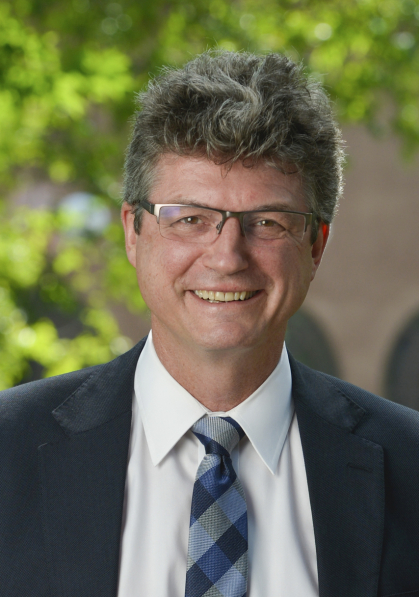
“We’re on the verge of an era where machines have minds, at least in some primitive way,” says Peter March, executive dean of the School of Arts and Sciences. Advancements in artificial intelligence (AI), data science, and intelligent tools, along with easy access to large amounts of real-time data, can improve overall quality of life. However, the misuse of these intelligent tools can also lead to loss of privacy, algorithmic bias, group marginalization, and the propagation of misinformation.
“There’s a useful analogy here to a sharp knife—you can use it to achieve great things, but if you aren’t careful or if you’re lazy, you can use it to cause harm,” says March.
The Minds and Machines project seeks to apply the insight and enterprise from the science, data, and technology powering our interconnected world. It will facilitate leveraging intelligent machines to address problems facing the planet and to safeguard people from the unintended consequences of using them. “What we can do with Minds and Machines is knit together a community that can use the cutting-edge tools of the computer age to address a lot of society’s problems,” says Molloy.
This project will on draw on Rutgers’ strengths in science, engineering, business, medicine, public policy, and the humanities to drive the transformational advancements for economic change and public good in a world with intelligent machines. “In order for technology to have an impact on all the wider questions of society—health, transportation, food security, poverty—we have to think about linking the decision-making aspect with the data that’s coming out from all this technology,” says Piyushimita “Vonu” Thakuriah, dean and distinguished professor at the Edward J. Bloustein School of Planning and Public Policy. “Rutgers is really good at putting those two silos together.”
Committed to Community
Rutgers–Camden Innovation Community Hub will promote an entrepreneurial ecosystem.
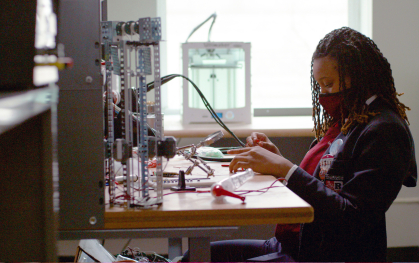
In the face of lost manufacturing jobs and systemic racism, residents of communities like Camden have historically faced gaps in accessing good jobs, health care, education, and safe housing. “We’re working closely together to make Camden a better place to live, and Rutgers is totally engaged in the community,” says Victor Figueroa, executive director of the Camden Housing Authority.
“We consider Rutgers–Camden an anchor institution, and it has been instrumental in helping the city in its revitalization, which has happened in the last decade,” says Palis. “But there’s still a lot of work to be done.” Enter the Rutgers–Camden Innovation Community Hub, which aims to develop a pipeline of educational and employment opportunities that community members can use to come together and create an entrepreneurial ecosystem in Camden and the region.
The Innovation Community Hub will invite Camden residents; Rutgers faculty and students; and private, public, government, and nonprofit agencies to develop innovative entrepreneurial solutions that advance sustainable socioeconomic growth. “We knew we couldn’t do it alone, but we knew together that we had enough expertise and experience in working with the Camden community and its residents. And that’s how the community hub model began to emerge,” says Donna Nickitas, dean of the School of Nursing–Camden.
Another champion of the project is Gloria Bonilla-Santiago SSW’78, a Board of Governors Distinguished Service Professor and director of the Community Leadership Center, who has worked for decades to transform Camden’s Cooper Street educational corridor. “It’s all about community development and creating training opportunities for self-sufficiency, shared meaning, and sustainable best practices,” she says.
Atmospheric Conditions
Earth 2100 will monitor regional weather dynamics as a model for managing climate change.
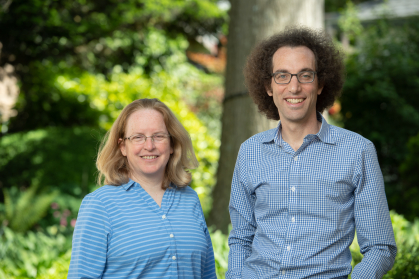
From apocalyptic wildfires and flooding to violent hurricanes and melting icecaps, human activity is catalyzing climate and ecological crises that threaten Earth’s ability to sustain us. “Two hundred years ago, there was a relatively small number of people and a relatively small economy on a large planet, so you could extract resources from the ground, use them, and then throw them away without a huge impact,” says Robert Kopp, director of the Institute of Earth, Ocean, and Atmospheric Sciences. “We do the same thing today and we get carbon dioxide accumulating in the atmosphere and plastics accumulating in waterways and our bodies.”
Kopp cites Rutgers’ tradition as a land-grant university, conducting research that solves problems for the public. “Earth 2100 upgrades that mission in dealing with global crises like climate change,” he says. Working with public and private decision-makers to link science with action, the project envisions using the Rutgers campuses, the state of New Jersey, and the Northeast megaregion as living laboratories, which are biologically rich and culturally diverse, to observe socio-ecological models that track and manage environmental changes.
“We’ve already locked ourselves into a rough ride over the next 50 to 100 years. How does my science play into ensuring that the ride isn’t long?” says professor Julie Lockwood, the chair of the Department of Ecology, Evolution, and Natural Resources at SEBS. Earth 2100 will address the challenge of assessing and managing climate risk, competing uses of coastal and marine resources, and the biodiversity impacts of climate change and land use while pursuing an ecologically informed, net zero-carbon future.
“There’s hope to reduce the impact of this problem,” says Mary Whelan, assistant professor at SEBS. “If we do things and make interventions now, climate change won’t be this horrible burden that we put on the next generation.”
Dream Catchers
Dreams Fulfilled will ensure that students get an affordable degree on time.
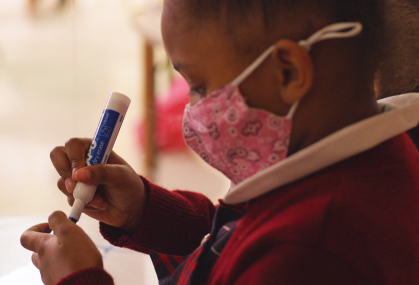
The Dreams Fulfilled project believes student excellence can be found in every zip code, income bracket, ethnicity, and nationality. “Many New Jersey students just can’t afford to get here,” says Molloy. “They can get tuition support, but that’s not enough.” The expression of talent is limited only by scarcity of resources and opportunity, and the perception of it only by imagination.
“What does ‘access’ mean?” asks Sherri-Ann Butterfield, executive vice chancellor and associate professor of sociology at Rutgers–Newark. “How have our practices been intentionally or unintentionally keeping certain kinds of students from attaining a college education?” Dreams Fulfilled mobilizes Rutgers programs like Rutgers Future Scholars, Scarlet Promise Grants, Bridging the Gap, and RU-N to the TOP as well as academic advising, honors programs, CARE Teams, and career services to ensure that all students—including those from underrepresented communities—have the resources to complete their degrees within four years and without significant debt.
Rather than viewing college as a stage in life, the project recognizes that college begins long before a student sets foot on campus and continues long after a student graduates. “As a state flagship university, we have a stewardship responsibility to make a difference in the lives of the many youngsters and residents of this state,” says Courtney McAnuff, vice chancellor of enrollment management at Rutgers-New Brunswick.
By connecting related programs under Dreams Fulfilled, the university can better identify and cultivate talent and leverage its expertise to help students, from demonstrating strong grade school aptitude to finding meaningful work as productive members of society. “Through our pipeline of support, we can fulfill this dream for young people and their families,” says Nyeema Watson, vice chancellor for diversity, inclusion, and civic engagement at Rutgers–Camden. “The students we support today will go on to help the next generation.”
Beating an Age-Old Enemy
The Cancer Immunology and Metabolism Center of Excellence will transform how cancer is treated.
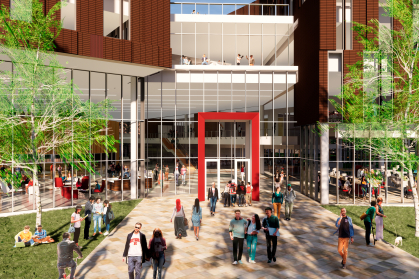
Immunotherapy—a class of treatments that harnesses the body’s immune system to fight cancer—has changed the game for cancer patients, helping those who had untreatable cancers live longer or even be cured. These treatments can offer an effective pathway to curing cancer, and the most pressing challenge for researchers is understanding why some people respond to immunotherapies and others do not.
“Cancer immunology is being studied by researchers nationwide,” says Steven Libutti, director of Rutgers Cancer Institute of New Jersey and senior vice president of oncology services at RWJBarnabas Health. “And recent research has shown that metabolism drives the body’s immune response to cancer.” That’s because the cells of the immune system also depend on their metabolism to grow and respond to invaders.
“What if scientists could target the metabolism of cancer cells and the immune cells to both inhibit the growth of cancer and boost the immune system’s response?” asks Libutti. “That’s the goal of the Cancer Immunology and Metabolism Center of Excellence.” The center seeks to bring cancer metabolism and immunology under one umbrella to fuel research that will lead to new therapies for patients, develop facilities to test new interventions, facilitate commercial and university collaborations, and transform cancer treatment.
In December 2020, the center received an anonymous gift of $25 million to translate laboratory discoveries in immunology and metabolism into treatments through more efficiently designed clinical trials.
A Universal Right
Urban Public Health Equity will champion an expansive notion of good health for all.
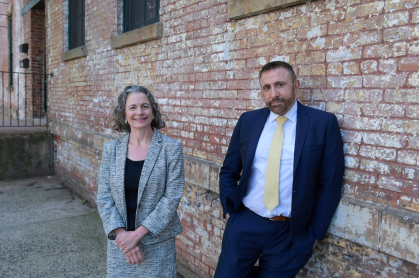
The coronavirus crisis exposed racial inequalities in health and access to care. The Black and brown communities that bore the pandemic’s brunt received a smaller share of COVID-19 vaccines than white communities—even though people of color are more likely to be employed as essential workers, unable to work from home, and more at risk.
“We’re not in a good place,” says Perry N. Halkitis, dean of the School of Public Health. “There are tremendous health inequities that have been exacerbated by the pandemic.” Adding that these inequities are predicated on social conditions, such as housing, income, and transportation that have been deeply impacted by centuries of systemic racism and discrimination toward marginalized populations. “It’s time to understand that health does not exist in a silo and to work across all of these systems and structures,” says Leslie Kantor, inaugural chair of the Department of Urban-Global Public Health at the school.
The Urban Public Health Equity project will support every person’s ability to achieve optimal health, regardless of their geographic location, socioeconomic status, race, ethnicity, gender identity, sexual orientation, or myriad identities. The new model shifts the focus of prevention and care from a strictly biomedical approach to one that considers the whole person and the systems and structures in which they live. Achieving these goals involves creating a community-centered urban public health hub in Newark, New Jersey, effectively training the public health workforce and expanding true community-engaged scholarship. Halkitis and Kantor call it an equity and social justice approach to public health. “It’s really approaching people as the solution, not as the problem; it’s model based on strength and not deficit,” they say.
“To affect the health of the whole population, it’s not enough to focus just on biology and behavior,” says Halkitis. “We have to think about the social conditions in which people are living.”
A New Business Model
The Rutgers Advanced Institute for the Study of Entrepreneurship and Development will cultivate diverse new generations of urban entrepreneurs.
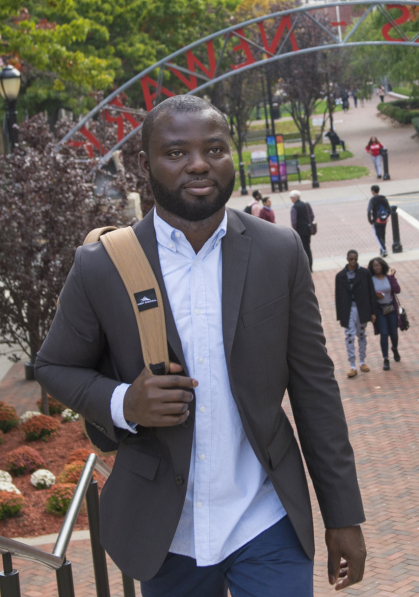
The Rutgers Advanced Institute for the Study of Entrepreneurship and Development—Newark-oriented yet global in outlook—wants to leverage its considerable resources to understand the experiences of local entrepreneurs who face scarce resources in order to help them and budding entrepreneurs address today’s most extreme economic inequalities.
As people move to cities and the gap between rich and poor grows, urban areas increasingly face challenges of poverty, education, health, and nutrition. “The institute focuses on resource constraints and adversity of all kinds that affect entrepreneurs and on how to overcome them,” says Ted Baker, George F. Farris Chair in Entrepreneurship at Rutgers Business School–Newark and New Brunswick (RBS). “We want to know how entrepreneurs can create prosocial ventures that improve their communities and the lives of their people.”
“A big problem we’re addressing is how can we get economic inclusion for all,” says Jeffrey Robinson, associate professor of management and global business at RBS. The institute spearheads the Urban Solutions Lab at the Honors Living-Learning Community, convening a diverse group of stakeholders who are creating more prosocial ventures in Newark and developing efforts to teach entrepreneurship across the curriculum.
The institute also helps formerly incarcerated entrepreneurs launch their ideas. “We coach, teach, and support people who have spent substantial time in prison and are trying to rebuild their lives through entrepreneurship,” says Jasmine Cordero-West, associate director of entrepreneurship at RBS.
For more information about Rutgers’ 12 Big Ideas, visit bigideas.rutgers.edu.